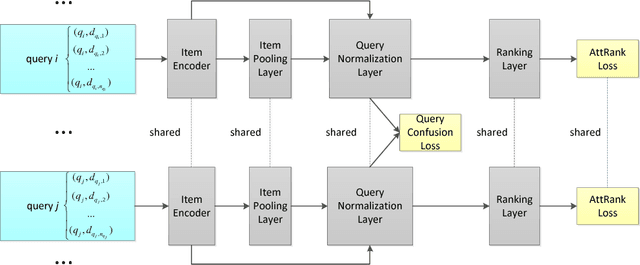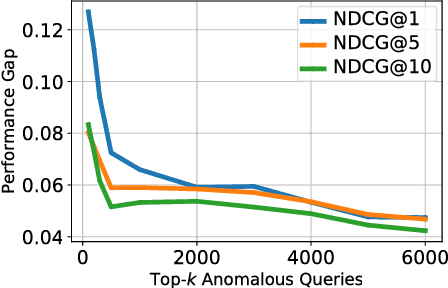A Domain Generalization Perspective on Listwise Context Modeling
Paper and Code
Feb 12, 2019



As one of the most popular techniques for solving the ranking problem in information retrieval, Learning-to-rank (LETOR) has received a lot of attention both in academia and industry due to its importance in a wide variety of data mining applications. However, most of existing LETOR approaches choose to learn a single global ranking function to handle all queries, and ignore the substantial differences that exist between queries. In this paper, we propose a domain generalization strategy to tackle this problem. We propose Query-Invariant Listwise Context Modeling (QILCM), a novel neural architecture which eliminates the detrimental influence of inter-query variability by learning \textit{query-invariant} latent representations, such that the ranking system could generalize better to unseen queries. We evaluate our techniques on benchmark datasets, demonstrating that QILCM outperforms previous state-of-the-art approaches by a substantial margin.
 Add to Chrome
Add to Chrome Add to Firefox
Add to Firefox Add to Edge
Add to Edge